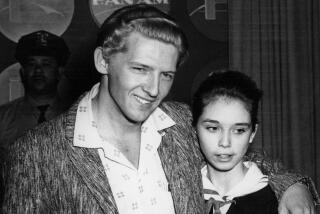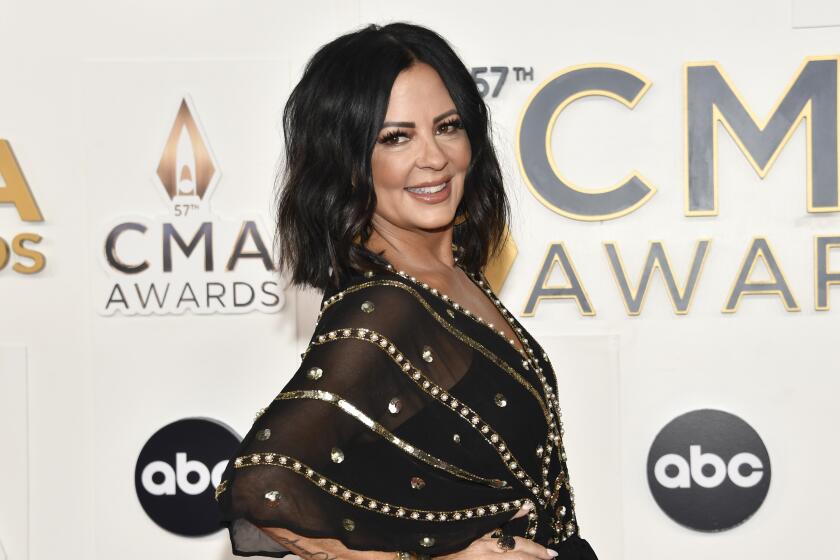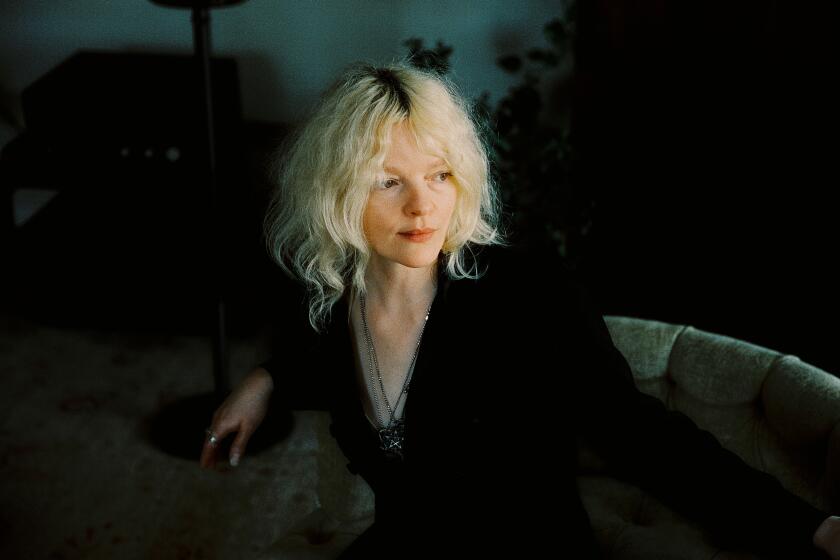One Jackson Divides Into Two Jazz Quartets
Milt Jackson lives a double life and would not object to enlarging that scope to triple or quadruple.
Since 1981, when the Modern Jazz Quartet reunited after a breakup that lasted almost seven years, Jackson has divided his time between MJQ tours with his longtime companions--John Lewis, piano; Percy Heath, bass; Connie Kay, drums--and dates with his own quartet.
“We started with the MJQ in February of 1952,” he recalled recently during a visit to Hollywood with his group. “For all but three of our years together, we’ve had the same personnel--Connie Kay replaced Kenny Clarke in 1955. That’s an all-time record in music. And we’ve performed with 36 different symphonies, most notably the Stuttgart; we played with the Juilliard String Quartet, and recently we did a television show with Itzhak Perlman.
“When the Modern Jazz Quartet takes off, I do these various other projects. I’m not one for long vacations--I’m like Duke Ellington, who never wanted to take time off. There’s only two other workhorses like that--Dizzy Gillespie, who has no children and likes to keep traveling; and Ray Brown, who works constantly--so much so that when we were together for a while, I had to tell him, ‘Man, put a break in there somewhere; you can work yourself to death but you’re not going to carry me with you!’ ”
Two other aspects of the vibraphonist’s career that have been neglected in recent years are his composing and singing. “People forget that my first profession was as a singer. I did the vocals on a whole album for Norman Granz in 1978, on Pablo, and there are two songs in there for which I wrote the words and the music: ‘Heartstrings’ and ‘For Someone I Love.’
“The best compliment ever paid me was when Quincy Jones said I could make a fortune as a composer and lyric writer. I haven’t done much writing lately, but I’m in the process of getting a new idea together.”
One item on the Jackson agenda is a return bout with Ray Charles, his partner on a unique album some years ago. Another is a small combo sound for which he would like to do some writing, featuring Jimmy Heath on soprano saxophone--”I love the sound he gets on that horn”--and James Moody on flute. Both, like Jackson, are veterans of the bop years.
As successful as he has been, Jackson feels that he and his contemporaries are still being held back by TV and radio.
“How often do you hear the MJQ, or any good jazz, on TV? Or on radio?,” he said. “I can remember when Symphony Sid was broadcasting live on ABC out of Birdland in New York and we could hear him in San Francisco or Dallas; and Sid McCoy came out of Chicago on NBC. Why is jazz sabotaged?”
“Sabotage” is perhaps an overly strong word, but it is true that most disc jockeys have rock stars in their eyes and that virtually all the jazz television specials are seen via cable or public TV. Serious treatment of jazz on the three major networks is a hair short of nonexistent, with a few notable exceptions, such as Dr. Billy Taylor’s interviews with musicians on CBS’ “Sunday Morning.” True, David Sanborn has his own series, but it leans heavily toward pop-jazz and fusion artists. The latter is another area about which Jackson has strong negative feelings.
“We experimented briefly with electronics in the Modern Jazz Quartet, and I hated it; I was so relieved when we abandoned it,” he said.
“You have to be pure at heart and very dedicated to play our kind of music. Consider the music Miles Davis is playing today, compared to that beautiful music he played 30 years ago. Of course, he has a reason; he probably got some big advances from Columbia Records and wanted to make some records that would pay back those advances. You can’t do that by making jazz albums.”
Charlie Parker remains Jackson’s principal hero, as he was when they played together on some of the early Dizzy Gillespie classics. “He was an amazing man, and there is a side of him that I never saw put in print--the fact that he was very well versed in art, literature, philosophy, history. I talked to him at length and was astonished at his knowledge. There was a fine line too between his genius as a saxophonist, which we all knew about, and the other side of him, the drug addict; more people ought to know what a brilliant human being he was.
“I am so dedicated to people like Bird, as well as Coleman Hawkins, Wes Montgomery, John Coltrane and, of course, Dizzy. I would come back from my grave to play with any of those giants at any time.
“Acoustic music is my kind of music; I like the natural sound, the melodic content and the lyrical beauty. And, until the people we play for get tired of listening to it, that’s the type of music I will always play.”
MODERN JAZZ QUARTET: “Fontessa.” Atlantic 1231-2. **** 1/2
Milt Jackson’s famous blues composition “Bluesology” is heard here in its pristine 1956 version, recorded when the Quartet and Jackson were winning annual jazz polls as No. 1 in their respective fields. An extended version of John Lewis’ title tune and chamber-jazz treatments of such standards as “Over the Rainbow” and “Angel Eyes,” helped establish this as one of the MJQ’s preeminent sessions.
More to Read
The biggest entertainment stories
Get our big stories about Hollywood, film, television, music, arts, culture and more right in your inbox as soon as they publish.
You may occasionally receive promotional content from the Los Angeles Times.






